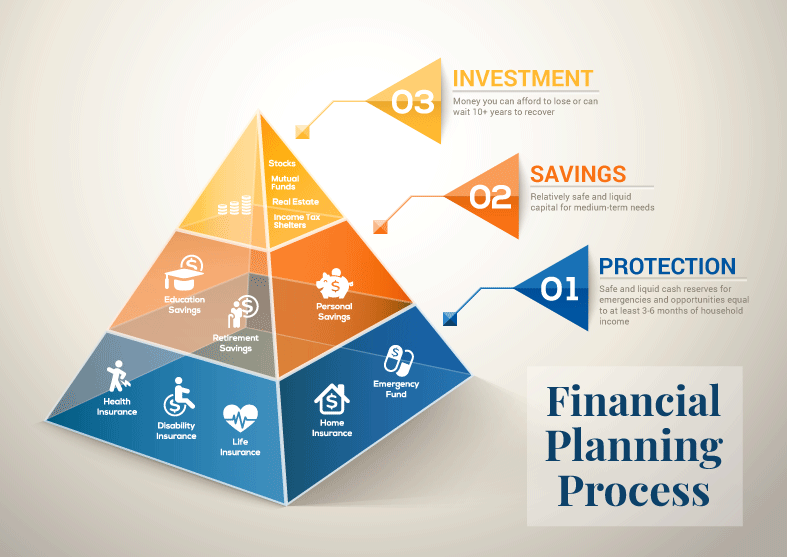Services & Links
- Wealth Accumulation, Management & Distribution
- Professionally Managed Money Portfolios
- Manage Tax Liability
- Retirement & Investment Strategies
- Long-Term Care Insurance, Protecting My Assets
- IRA’s/401K Rollovers, Roth IRA’s
- Mutual Funds*, Investing During Retirement
- College Planning
- Fixed Annuities**, Fixed Indexed Annuities**
- Business Succession & Exit Planning
- 401K Plans & 403(B)
- Life, Disability & Health Insurance
- Medicare Plans
- Auto, Home & Business Insurance
- Philanthropy
These calculators are hypothetical examples used for illustrative purposes and do not represent the performance of any specific investment or product. Rates of return will vary over time, particularly for long-term investments. Investments offering the potential for higher rates of return also involve a higher degree of risk of loss. Actual results will vary. We strongly recommend that you seek the advice of a financial services professional before making any type of investment.
Investment & Insurance
We carry a wide variety of investment and insurance products to help you achieve your financial goals.





















Frequently Asked Questions
Click the + on the right to reveal the answer.
What is a type of account to open for tax-free retirement savings?
A Roth IRA. The younger you are, the better, because you have more years to save within the Roth IRA. The money placed into the account is after-tax money, but it comes out tax free.
Another option could be utilizing a life insurance policy. There are certain tax advantages within a life insurance policy where money can grow tax deferred and come out tax free.
A Roth IRA distribution is qualified if you’ve had the account for at least five years and/or the distribution is made after you’ve reached age 59½, because of your total and permanent disability, in the event of your death or for first-time homebuyer expenses. Distributions made prior to age 59 ½ may be subject to a federal income tax penalty. If converting a traditional IRA to a Roth IRA, you will owe ordinary income taxes on any previously deducted traditional IRA contributions and on all earnings. I suggest that you discuss tax issues with a qualified tax advisor.
What is one way to save for my child/children’s college education?
A 529 plan. Most states offer a 529 plan. The money grows tax deferred and comes out tax free, so long as the money is used for educational purposes. Another advantage of this plan is that say you have multiple children and your oldest child gets a scholarship, you can transfer or change the beneficiary to any of your other children. You can even, if there is money in the account, bring the funds back to yourself if in retirement and you are going to take classes, such as a photography or cooking class, at an accredited college. Worst case, you pay a penalty and taxes to withdraw the money and not use it for educational purposes.
A 529 plan is a college savings plan that allows individuals to save for college on a tax-advantaged basis. Every state offers at least one 529 plan. Before buying a 529 plan, you should inquire about the particular plan and its fees and expenses. You should also consider that certain states offer tax benefits and fee savings to in-state residents. Whether a state tax deduction and/or application fee savings are available depends on your state of residence. For tax advice, consult your tax professional. Non-qualifying distribution earnings are taxable and subject to a 10% tax penalty.
Why should I choose to invest in an annuity as opposed to stocks or bonds?
Annuities, as I like to refer to them, are another bucket of money. There are advantages to annuities but they are complex vehicles with a lot of moving parts. The most popular today are indexed annuities. The money grows tax deferred so you can use it as non-qualified money to get the tax advantage, in which case you pay tax when you withdraw the money on a gain. It is a vehicle which is commonly used for diversification purposes where you might allocate money into bonds. For instance, in a 60/40 split (60% of money in stocks, 40% in bonds), you might take half of the money allocated to bonds and put it into an indexed annuity because you can also add a lifetime income rider onto it, which therefore could become a nice vehicle to receive additional income along with social security, pensions, etc.
Diversification does not guarantee a profit or protect against a loss in a declining market. It is a method used to help manage investment risk.
Riders are available for an additional fee – some riders may not be available in all States.
Which is more beneficial to me, term or permanent life insurance?
Term life insurance is like renting versus permanent life insurance is like owning your home. If you can afford it, go with permanent. Most young people, just married, or getting ready to start a family go with term policies because they are cheaper. You can get term policies for 5, 10, 15, 20, 30 years. It is a guaranteed premium, but it is for a term and will end. These are contractual policies and depending on the company, you can convert your policy to a permanent policy without proof of insurability. That means if your health was to take a turn during that time and you are no longer insurable, you are still able to convert that contract into a permanent policy. There is also a living benefit, which means that if you are terminal (usually 24 months to live) you can access that death benefit while you are alive. More importantly, for chronic illnesses that you need custodial care not covered by health insurance you can advance a portion of that death benefit each year to offset that cost. It becomes a bucket of money that you can use. Both term and permanent policies have it, depending on the company.
If you can afford it, go for permanent from the get-go. However, most people start off with term and convert it. It can take the place of a long-term care policies because premiums in life insurance policies are guaranteed.
What is most important to you when it comes to a client-advisor relationship?
Communication. Understanding what the goals of the client(s) are, what the client(s) are trying to achieve, understanding their time horizon, and understanding expectations that they have about my duties to them. I am the quarterback and help the client achieve their goals, from saving for college to planning for retirement. Through the accumulation and distribution phases of wealth I am here to help you plan. I also have relationships with attorneys to assist in other areas of planning such as Medicaid planning and estate planning as well.
What is Long-Term Care (LTC) and why should I be interested in it?
Long-Term Care (LTC) came about because the custodial care that you need is not covered by health insurance, and you can use LTC to cover those costs at home, at assisted living, or at a nursing home. You are the architect and you can design the structure of your LTC policy. If you cannot perform 2 out of 6 Activities of Daily Living (ADLs), you can go on claim and get paid either daily or monthly, for a specific time (2, 3, 4, 5, years).
Are there any Long-Term Care “options” for me to invest in?
Yes, utilizing permanent life insurance. Permanent life insurance premiums are guaranteed while Long-Term Care premiums are not. Life Insurance will pay out if you go on claim for long-term care because you cannot perform 2 out of 6 ADLs or if you pass away. The premiums you pay will come back to you via the living benefit or the beneficiary when you pass away as a death benefit. Long-Term Care covers the what-if, the premiums are not guaranteed to come back to you.
Mutual Funds 101
Start early. Understand what your risk tolerance is and your time horizon. If you start early enough you can put a little money aside and it can grow for a long time. There are no guarantees with the market but based on past performance you should do well over a long period of time. The sooner you start the better. Working with an advisor is helpful as well. Communication with your advisor to put you in the right fund based on your risk tolerance is the best starting point. Invest within your means over a long period of time. This money should be for emergencies or for retirement, not to be taken out in a short period of time.
How do taxes effect my annuities?
An Annuities Registration can be an IRA, which means 100% of the money that comes out of the annuity is taxable. If you do not touch the money, at age 72 your Required Minimum Distribution (RMD) will be taxable.
You can put non-qualified money (after tax money) into an annuity, and that money will grow tax deferred. When you go to pull the money out, you will pay tax on the gain only at that time.
Are there any disability income products out there in the market?
Yes, there are short-term disability and long-term disability. My feeling is to not sweat the short-term disability. I am more concerned with a client for the long-term disability (LTD). To replace their income, not if you die but become disabled, LTD insurance can replace up to 60% – 65% of your income, tax free, as long as you pay the premiums and do not take a tax deduction. You are the architect of these plans so you can design it to be expensive as you want. You do, however, have to provide tax returns and proof of income. There are a lot of features and riders that are available. It is a great vehicle from a financial standpoint to help cover yourself and your household.
When should I take Social Security?
Starting too early and you will be taking in smaller checks each month, possibly leaving money on the table.
Starting later (age 70) and you will receive larger payments, but they will come over a shorter period (life expectancy). Calculating the break-even age for benefits is a useful way to make sure your payments and longevity balance.
Some considerations to think about are your health, life expectancy, how long did your parents live, do you need the money. These factors may indicate that you should take your benefits as soon as you possibly can. If you are still working and you do not need the income, you might want to wait until full retirement age. I do have clients that do wait all the way to age 70. You earn 8% a year each year that you let that money sit and continue to grow, guaranteed. However, these payments stop upon your death. Understand life expectancy and your health at the time of making a decision and do you need the money are very important factors in making this decision.
Not associated with or endorsed by the Social Security Administration or any other government agency.


Schedule your free, no obligation consultation.

